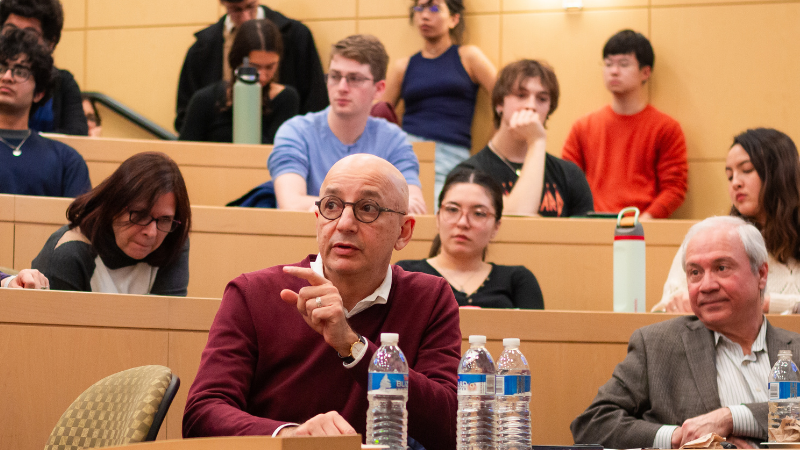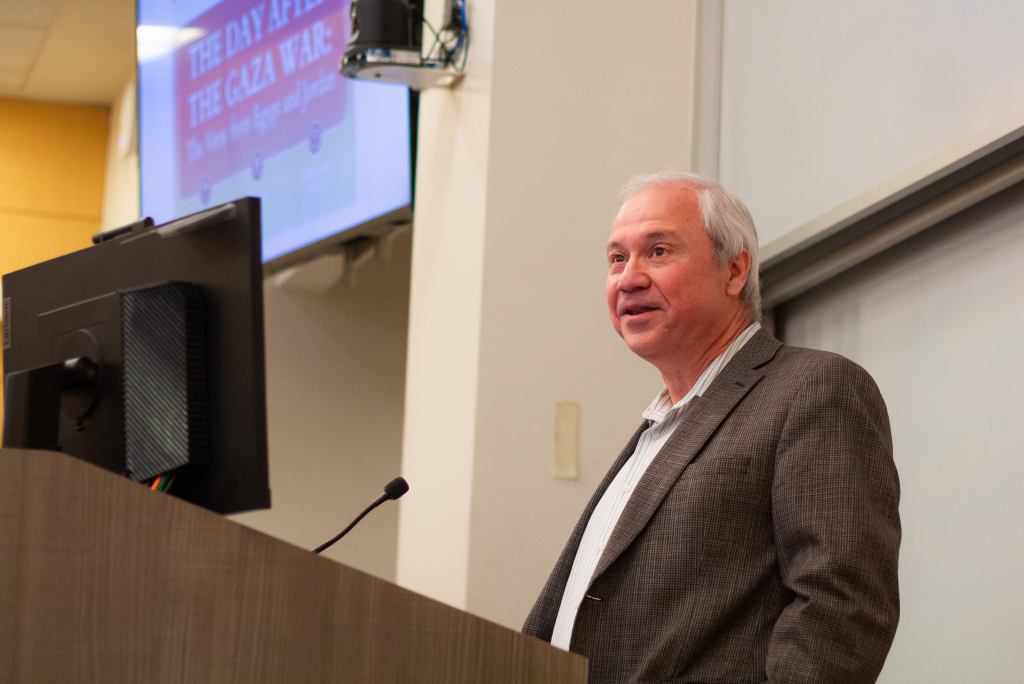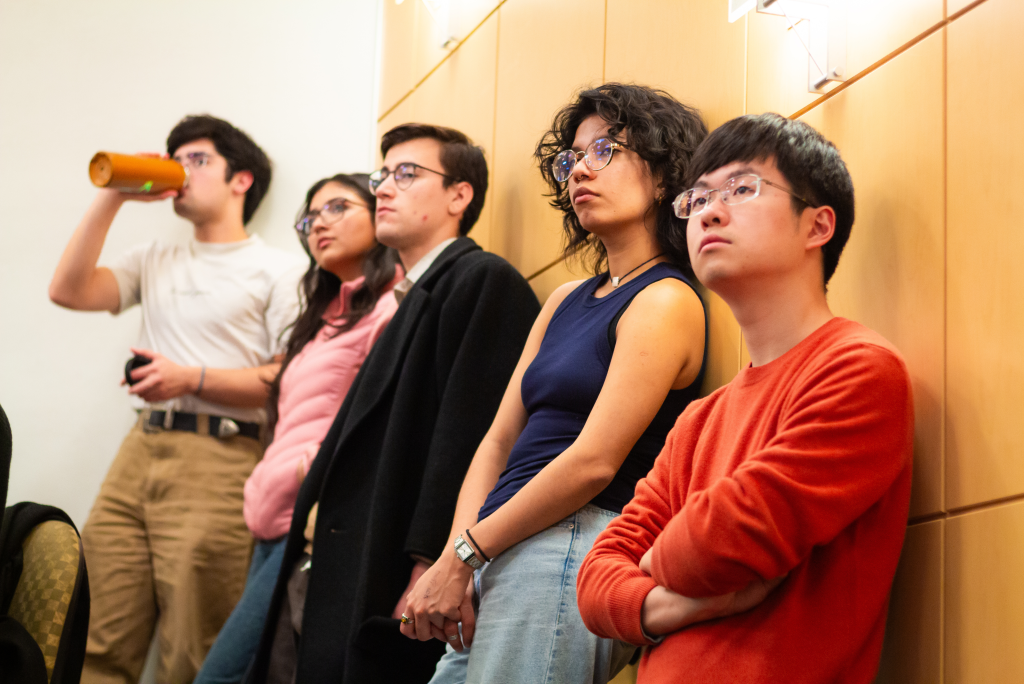
The Day After the Gaza War: The View from Egypt and Jordan
On February 25, 2025, the Fares Center hosted Professor Khaled Fahmy, Edward Keller Professor of North Africa and the Middle East at Tufts University, and Professor Malik Mufti, Professor of Political Science at Tufts University, to discuss the Jordanian and Egyptian perspectives of the War on Gaza. The talk focused on the proposals to relocate Palestinians from Gaza to Egypt and Jordan. Both speakers emphasized that neither country appears prepared to accommodate such a plan.
Professor Mufti indicated that Jordan’s leadership views a permanent demographic shift as a direct existential threat. Any forced arrival of large numbers of Palestinians, he suggested, would likely trigger a severe crisis. Professor Mufti discussed previous episodes in which similar arrangements were discussed, such as the 1990–91 Gulf War, when Jordan feared sudden Israeli decisions might force Palestinians eastward. He concluded that Jordanian authorities remain resolutely opposed to any attempt at large-scale Palestinian resettlement.



Professor Fahmy underscored the logistical and political impossibility of integrating two million Gazans into Sinai. He noted that the Egyptian military is already strained by counterinsurgency operations, and the broader public remains staunchly opposed to the permanent resettlement of Palestinians outside their homeland. He also discussed Egypt’s relationship with Israel and the country’s reliance on foreign aid and regional investments. In his view, Egypt’s rejection of a permanent transfer of Gazans into the Sinai reflects both genuine security concerns and a recognition of the fragile economic situation.
In their discussion of American policy, both professors addressed its potential impact on Egyptian and Jordanian decision-making. Professor Mufti noted that Jordan has historically depended on the United States to dissuade Israel from taking drastic action. Professor Fahmy added that extensive defense and intelligence cooperation with Israel—backed by substantial American financial assistance—underpins the Egyptian government’s regional security posture. However, current U.S. signals have unsettled both Amman and Cairo, raising concerns about the reliability of continued American support. Both presenters concluded that coercing Jordan or Egypt into absorbing large Palestinian populations could provoke regional instability, weaken existing pro-U.S. regimes, and inflame public opposition across the Middle East.
